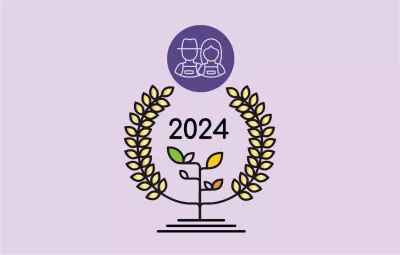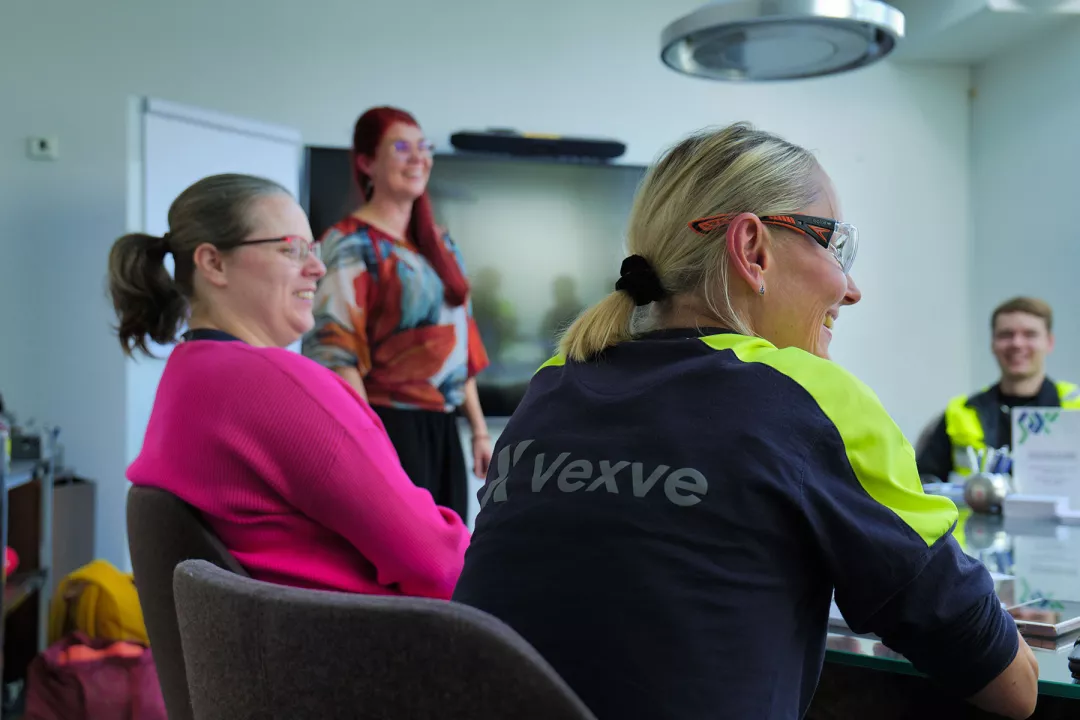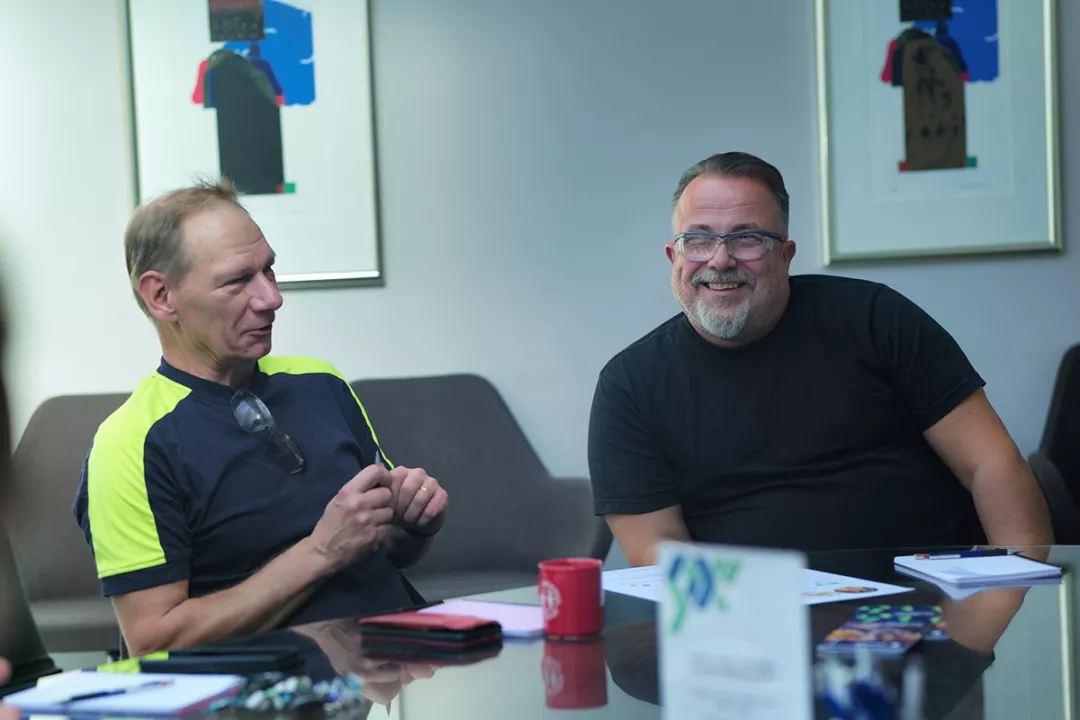General information
RDP Priority
- P6. Social inclusion and local development
RDP Focus Area
- 6B: Local development
RDP Measure
- M07: Basic services & village renewal
Beneficiary type
- Non-governmental organisation
Summary
According to research, Finnish employees and business owners are experiencing more stress every day than ever before. Burnout has become more common, and mental health challenges are the most prominent cause of sick leave and disability pensions. The burnout and suicide rates of young women are also increasing.
In the workplace, poor mental health is associated with both absenteeism and presenteeism, leading to decreased work performance and productivity, an increased risk of unemployment, and job uncertainty. These factors also affect social networks outside the workplace.
This project was run in 2021-2023 in an environment of uncertainty, fear and the exhausting workload set by COVID-19 and Russia’s invasion of Ukraine, which had a profound threat to the sense of safety and security in Finland. It was carried out by the non-profit organisation MIELI Tukitalo, with actions focused on normalising the issue of mental health at work. The main slogan was: “Each one of us has a mind. We can talk about it. We can empower it.”
The project reached 90 different workplaces and nearly 1 800 people of all ages and genders in the sectors of education, health and social services, and local and international businesses.
Results
- 1 736 people in rural areas benefited from improved services.
- 1 399 people participated in activation events.
- 90 organisations participated in the activation and information events and the implementation of the project .
- 80 workshops/training sessions/promotional events.
- Three companies, with around 800, 100 and 92 employees, respectively, received the Mental Health Friendly Workplace certificate for their work towards improving mental health in the organisation.
- Seven blog posts shared online.
- Seven news articles published in local newspapers plus Finland’s second-largest newspaper (circulation 700 000).
- Five YouTube videos with a total of 440 views.
- Four freely distributed training packages on strengthening mental health skills at the workplace (topics include managing perfectionism and workload, self-assessment and improving positive mental health, and improving the interaction of the work community).

Promoter
MIELI Tukitalo Mielenterveys ry
Funding
Total budget: 128 301 (EUR)
EAFRD: 48 471 (EUR)
National/Regional: 43 855 (EUR)
Private/Own funds: 12 894 (EUR)
Other non-EU funding sources: 23 081 (EUR)
Context

According to research, employees and business owners are experiencing more stress every day than ever before. Burnout has become more common, and mental health challenges are the most prominent cause of sick leave and disability pensions. The burnout and suicide rates of young women are also increasing.
In Finland, the number of mental-health-based disability pensions has increased by 25% since 2016. By 2019, they had become the most common reason for retirement due to a disability. Continuous change, locally and globally, has burdened the everyday lives of working communities.
This project took place in 2021-2023 in an environment of uncertainty, fear and the exhausting workload set by COVID-19 and Russia’s invasion of Ukraine, which had a profound threat to the sense of safety and security in Finland.
In the workplace, poor mental health is associated with both absenteeism and presenteeism, leading to decreased work performance and productivity, an increased risk of unemployment and job uncertainty. These factors also affect social networks outside the workplace.
Several barriers complicate seeking help, mental health-related stigma being the most prominent. Stigma can involve labelling, stereotyping, exclusion, loss of status and discrimination. This includes social stigma reflecting an individual’s perception of what others think and feel, and self-stigma reflecting individual thoughts and attitudes that restrict a person’s openness about mental health difficulties, increase the risk of social exclusion and limit seeking help.
This project aimed to alleviate these challenges.
Objectives
The project was looking to improve the skills required to strengthen mental health in the workplace and provide those workplaces with concrete tools to support work performance and prevent psychological stress on employees in their everyday lives. The end result would hopefully be workplaces where people could talk about mental health safely and without stigma.
Supporting the mental well-being of working-age people and indirectly support the well-being of their families and social networks also has the benefit of improving the economic resilience of rural communities, while contributing to the inclusiveness and resilience of rural society. It also helps support rural entrepreneurs and businesses.
Finally, the project looked to provide comprehensive information on other services which support mental well-being.
Activities

The project began with the recruitment of a project manager with expertise in project management, marketing and mental health training, making her well-suited for the project's objectives.
Initially, efforts were focused on raising awareness and engaging the target audience. However, it soon became clear that the project’s sales pitch needed to be adapted to enable it to align with each different workplace's mindset, culture and needs.
The basic message in the initial project’s marketing activities was to emphasise the importance of the mental footprint in daily workplace agendas, highlighting its benefits not only for the sake of morale, but also for a company’s financial and competitive advantage.
This was achieved with the 'supporting mental health at work' method, which is a 'Mental Health Friendly Workplace' quality system set up by the Finnish Ministry of Social Affairs and Health. It offers a framework to integrate mental health into all workplace processes, from daily activities to board meetings.
The project aimed to share information and tools, promoting mental well-being both individually and collaboratively in workplaces. In Finland, mental health issues have been sensitive and challenging culturally, and as such, the project focused heavily on psychology training to equip workplaces with the appropriate language for discussing mental health positively.
A pilot project was implemented with the city of Sastamala to support the mental well-being of staff at three schools, which participated as a test group in 30-minute workshops addressing five different aspects of mental well-being at work. A total of 10 workshops were organised for school staff in cooperation with the city’s well-being coordinator.
Cooperation with the city of Sastamala benefitted the project greatly with the training material created for schools also being utilised for marketing and training other customers. One great finding was the time-efficient 'circle of roses' method which easily addresses daily worries and positive aspects in the work community. Other pilots also took place, including with export company Vexve, whose staff of nearly 200 participated in 10 project workshops.
Overall, 90 workplaces were reached across different sectors: education (elementary schools and upper secondary schools, civic college), health and social services, and local and international businesses in the fields of sports, health, agriculture, finances, electrical engineering and welding.
Main results
1 736 persons in rural areas benefited from improved services thanks to the project, which saw 1 399 people from 90 organisations participate in the activation and 80 events (workshops, training sessions and promotional events). Three companies received the Mental Health Friendly Workplace certificate for their work towards improving mental health in the organisation, namely the cities of Sastamala (800 employees), Punkalaidun (92 employees) and Telilän Sähkötyö Oy (an electrical services company with around 100 employees).
There were also various blog posts shared online, along with articles in local newspapers and in Aamulehti, Finland’s second largest newspaper, with a circulation of 700 000.
Overall, mental health expertise has been increased, with new operating methods introduced at workplaces to promote mental well-being in work communities. The project has contributed to increased mental health literacy, intention to seek help and increased resilience while reducing the stigma related to mental health issues and the fear of being stigmatised in the workplace. When the city of Sastamala received its Mental Health Friendly Workplace badge, it decreed that '2024 would be a year of mental well-being'. In Finland, naming mental well-being a top priority is a huge cultural step.
Recruiting a highly skilled project manager with a background in project management, marketing, and social and mental health training contributed to successfully exceeding the project goals and to the ability to reach people of all ages and genders from different socioeconomic backgrounds.
Key lessons
It was a difficult process, proving that a straightforward 'let's just go and talk about mental health' attitude does not work and finding more effective activities. Marketing skills were used in the planning of the project and to package applicable services, and then to sell and match them to the needs of very different workplaces.
Pedagogical skills, combined with an understanding of the psychology of learning and social psychology, were required to successfully get attention, gain trust and initiate change in a wide variety of professional situations.
Designing actions that are transferable was also critical, as was finding ways to motivate employees and management to improve mental health skills by perceiving colleagues as human beings in an environment where trust and respect set grounds for change.
Tiina-Maija Paloranta

